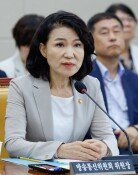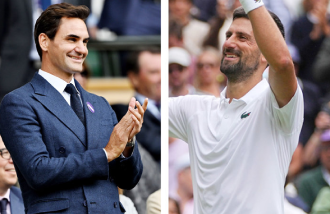Excessive subsidies to political parties
Excessive subsidies to political parties
Posted April. 02, 2001 18:40,
During the next year, state subsidies to political parties will reach as much as 113.9 billion won for the presidential and local elections. This means that an average eligible voter should pay 3,400 won for providing the subsidies, more than four times as much as during a non-election year. The figure breaks down to 800 won for the current subsidy to the political parties, 800 won for the presidential election and 1,800 won for the three-level local elections, provincial (special cities), cities (counties) and towns (wards). Since party membership fees don`t provide sufficient revenues, state subsidies for the political parties are deemed necessary to fund their political activities. Taxpayers might be willing to shoulder this financial burden if politicians were doing a good job. However, in view of current realities, the general public will be hardly inclined to approve more than 100 billion won in tax money for the political parties.
Moreover, being that some politicians play golf almost every day and frequent top-class hotels and deluxe restaurants, the people have begun to wonder where such an enormous outlay is going. Worse yet, reports have it that the parties, after abusing the government aid fund, falsified financial records to hide their wanton spending. In other words, the parties were engaged in inflating or fabricating receipts for submission to the National Election Commission (NEC). In some cases, hundreds of millions of won was reported to have been spent as part of a confidential fund by some key party holders without clues to determine how the cash was actually used. In some cases, a considerable amount of money was found to have been paid for a luncheon hosted by the wife of the party president, and in another case, the aid fund was used by the party president to purchase wristwatches for use as gifts.
There were some ambiguous disbursements of state subsidies in the guise of opinion survey activities and policy development projects among others. In this situation, securing transparency in the use of state funds could hardly be attained. Nonetheless, the political parties are exempted from probes by the Board of Audit and Inspection. Currently, if the parties submit accounting reports on the spending of state subsidies, the election watchdog puts them on public notice for three months. If no problems are raised, they are considered to be warranted. The NEC stresses that it conducts scrutiny into accounting books, yet its audit system has never properly functioned, noting that no irregularities have been ferreted out by the commission since 1980. Neither the ruling nor opposition parties should use state subsidies in this manner. Though belated, the government authorities concerned ought to activate a thorough and transparent audit system as soon as possible.




![[단독]전직의원 속속 합류하는 대통령실…이영호·배진교도 비서관에](https://dimg.donga.com/c/138/175/90/1/wps/NEWS/IMAGE/2025/07/09/131967216.1.jpg)


